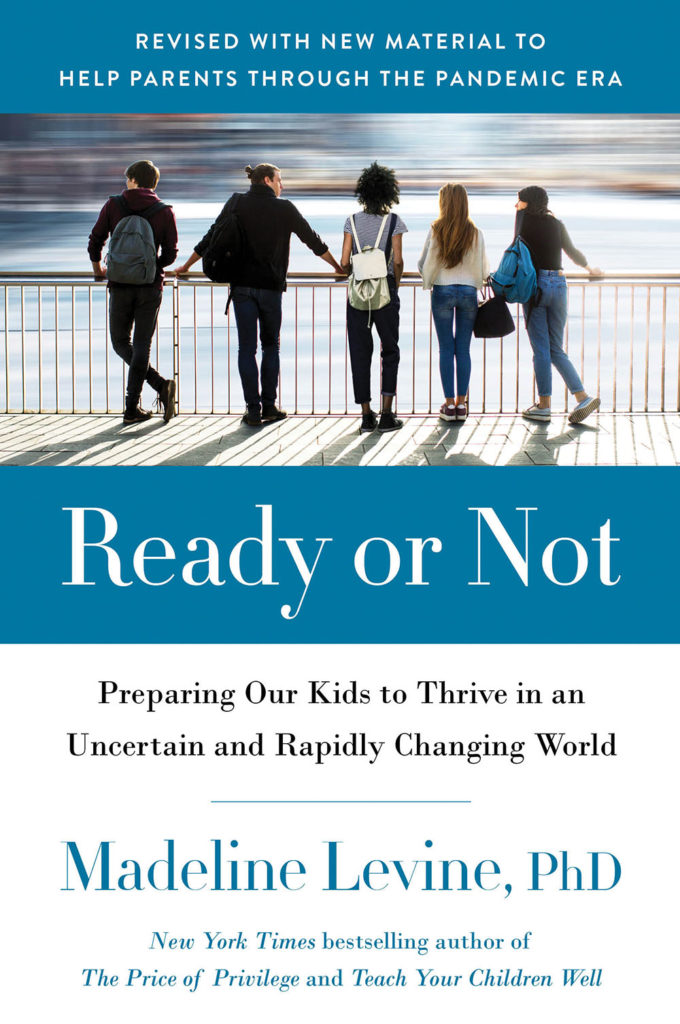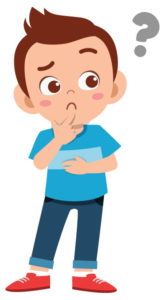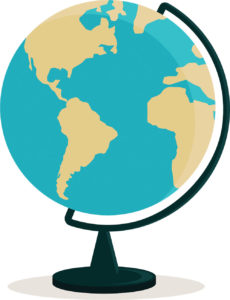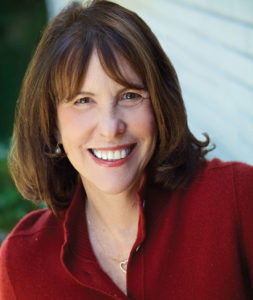
When psychologist Dr. Madeline Levine’s latest book “Ready or Not: Preparing Our Kids to Thrive in an Uncertain and Rapidly Changing World” (Harper, 2020) published at the end of February 2020, unbeknownst to her, the book’s material was about to get even more relevant.
Levine, a New York Times bestselling author, has more than 35 years of experience as a clinician, consultant, educator and writer. “Ready or Not,” Levine’s third book, offers parents ways to best prepare children for the volatile world they will enter as adults.
We spoke with Levine about her book, her advice and the ways in which our current educational and parental systems can do more to help our children thrive in a rapidly changing, stressful environment.
Editor’s Note: The following interview has been condensed for space and edited for clarity.
In “Ready or Not,” you write that you believe parental anxiety and the pressure-filled parenting style that has come about as a result of upheaval politically, socially, etc.—that pushes children to excel—is epidemic. Why do you believe this phenomenon is so prominent at the moment?
Madeline Levine (ML): Well, I’m not sure that I think the same kind of pressure that parents had before the pandemic is exactly what it’s like now.

I think, in a nutshell, parents are rightfully anxious about their children’s prospects in a world that they don’t understand. And now, it’s a world that nobody understands.
I think that the impetus for writing “Ready or Not” was (that) I had written two previous books on the same topic over a period of 15 years, and I traveled this entire country, as did many of my colleagues, with the exact same message: Kids need to play. Have rates (of anxiety) gone down? No!
For “Ready or Not,” I didn’t talk particularly to psychologists or educators. I talked to business heads (among others)—people who live in uncertainty—thinking that maybe they had more practice than we did.
Every parent says, “I want my kids to be happy.” But the message in “how’d you do in school?” “how are your SATs?” “where are you going to college?” is that this is the most important thing you can do: be a straight-A student, get into a great college, and then from there, you’ll go to Google or LinkedIn. But what was stunning about the research is that I went to all those places, and they were unanimous in saying, “No, that’s not what we’re looking for anymore.”
When you were talking to leaders inside and outside of psychology, what emerged as the most important skills for kids to have as they prepare to face the years ahead?
Perseverance, flexibility, collaboration, curiosity, creativity and self-regulation. (There is also) educated risk taking—being open to seeing things differently. I’m not pushing risk taking like running out on the street, but that willingness to try something new, to see something in a different way, that comes up a lot also.
Where are we failing our kids? What exactly are we doing that’s causing our kids to fall short in this rapidly changing world?
I think it goes back to this notion of success.
(Pre-pandemic,) every time I gave a talk, I had two slides. (The first was a) straight line—that’s the trajectory of “you know what you want to do. You get the grades. You go to a great school … do that work, and you’re happy ever after.” And no matter where in the world I presented that slide, the number of people who took that direct route is between 1% and 10%. That leaves 90%-99% of people who took a jagged—or squiggly—path.
As a parent, you’ve got to open up your notion about what it means to be successful in the world. My practice is made up of “highly successful” young people who don’t have coping skills. Across the country now, there are emerging adulthood programs to help kids because parents, (while) well-meaning, have accommodated anxiety as opposed to having faith that challenge is what makes kids happy and confident.

(For example,) your kid comes home one day, and the dog down the street was barking, and your daughter is teary and afraid. That moment is a critical moment, and too many parents are saying, “Don’t worry about it, honey. We’ll take the car tomorrow, and you don’t have to walk past the dog.” That is the wrong thing to do. It teaches (the child) “You’re not capable of managing this. I don’t have any faith in you managing this. Mom knows best how to handle these things,” as opposed to what we call scaffolding, where you allow the child, little by little, to master challenge.
In my book “Teach Your Children Well,” I say think of child development as a scaffold. A scaffold needs a sturdy base to support its higher rungs. It is important that we respect this progression as our children climb rung by rung and not push them to the top prematurely or without adequate support. Good parenting skills make this climb safer, more satisfying and more successful for our kids.
In a reverse scenario, how would you advise parents to help kids who seemingly put the pressure to succeed in traditional ways upon themselves?
Fifteen years ago, it was not the kids. It was all the parents (being hard on their children to succeed). That has changed during the last five to seven years.
And I think that’s a much more difficult challenge than getting parents to “back off” because kids have come to define themselves so externally—that was the water they swam in for many years. You would go into a school, and what did you see in the front of the school? You’d see the honor roll, and you’d see athletic awards, and that told you right away what was valued. I think that will only change when the cultural narrative changes—and that’s on the adults.
I think it’s parents and educators who need to start truly valuing … commitment and perseverance. And so I think (it’s important that) we can have a bigger tent for kids—that we value other things, that we sit down and talk about our values. As a consultant, every family that I go into, we do “values” first thing.
I think this is a great time for “values” conversations. If nothing changes, this will be a tragedy. We want a different kind of education. We want less anxiety. We want our kids to develop skills that are more in line with what’s likely to be valued (in the real world).
About Dr. Madeline Levine

Psychologist Dr. Madeline Levine has spent more than 35 years working as a clinician, consultant, educator and author. Her books such as “The Price of Privilege” (Harper, 2006), “Teach Your Children Well” (Harper, 2012) and “Ready or Not: Preparing Our Kids to Thrive in an Uncertain and Rapidly Changing World” (Harper, 2020) focus on topics related to children’s social-emotional health. Levine is the co-founder of Challenge Success at Stanford University’s Graduate School of Education. Challenge Success offers families and schools practical, research-based tools parents need to raise children motivated to reach their full potential.
Learn more about Levine at madelinelevine.com. Find Levine’s books on amazon.com, barnesandnoble.com and indiebound.com.







